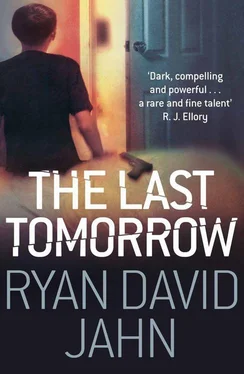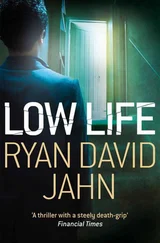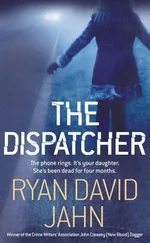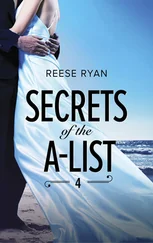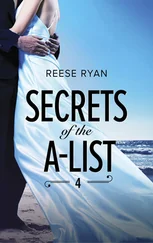Ryan Jahn - The Last Tomorrow
Здесь есть возможность читать онлайн «Ryan Jahn - The Last Tomorrow» весь текст электронной книги совершенно бесплатно (целиком полную версию без сокращений). В некоторых случаях можно слушать аудио, скачать через торрент в формате fb2 и присутствует краткое содержание. Год выпуска: 2012, ISBN: 2012, Издательство: Macmillan Publishers UK, Жанр: Триллер, на английском языке. Описание произведения, (предисловие) а так же отзывы посетителей доступны на портале библиотеки ЛибКат.
- Название:The Last Tomorrow
- Автор:
- Издательство:Macmillan Publishers UK
- Жанр:
- Год:2012
- ISBN:9780230766501
- Рейтинг книги:4 / 5. Голосов: 1
-
Избранное:Добавить в избранное
- Отзывы:
-
Ваша оценка:
- 80
- 1
- 2
- 3
- 4
- 5
The Last Tomorrow: краткое содержание, описание и аннотация
Предлагаем к чтению аннотацию, описание, краткое содержание или предисловие (зависит от того, что написал сам автор книги «The Last Tomorrow»). Если вы не нашли необходимую информацию о книге — напишите в комментариях, мы постараемся отыскать её.
The Last Tomorrow — читать онлайн бесплатно полную книгу (весь текст) целиком
Ниже представлен текст книги, разбитый по страницам. Система сохранения места последней прочитанной страницы, позволяет с удобством читать онлайн бесплатно книгу «The Last Tomorrow», без необходимости каждый раз заново искать на чём Вы остановились. Поставьте закладку, и сможете в любой момент перейти на страницу, на которой закончили чтение.
Интервал:
Закладка:
By the time he parks and steps from the car his face is beaded with sweat. There’s an unbearable itch at the back of his brain that demands scratching.
He walks into the boarding house. Mrs Hoffman is washing dishes in the kitchen. She says hello as he walks past the door, you’re coming home late, and he says mind your own business and heads up the stairs and down the hallway to the bathroom. The door’s closed. He knocks. No answer. He opens it and finds the room empty. He steps into the room and closes the door behind him and locks it. He walks to the toilet and pulls down his pants and sits. If he doesn’t take a shit now, it’ll be another day before he’s able to, and it’s been two days already. He’s trying to remain as healthy as possible, trying to function normally.
He spits between his knees.
He looks at the wall across from the toilet and sees a framed Norman Rockwell picture. It shows a little girl holding a doll out to a doctor. The doctor holds his stethoscope to the doll and pretends to listen to its heartbeat. He’s never noticed it before. He idly wonders how long it’s been there, but doesn’t really care.
He grunts, trying to get something out. He looks down at the tile floor between his knees and curses. After a while he gives up. He wipes anyway and pulls up his pants.
He walks to his room and closes the door behind him and locks it.
He pulls open his dresser’s top drawer and there he finds a crumpled paper bag. He grabs it and holds it tight, as if someone might try to take it from him, and walks to his bed. He opens it and pulls out a blackened piece of foil, a pen casing, a pocket knife, and a small paper bindle.
The first time Carl smoked this stuff, in the weeks following his wife’s death, he can’t remember exactly how soon after, it’s all a fog to him now, he overdosed himself, smoked far too much, and vomited. Next thing he knew he was lying on the floor beside his own sick feeling nothing at all but quiet calm. There was no feeling of elevation. There was just conscious nothingness. Which, to him, was better than bliss. He understood what Heaven must feel like, and he knew his wife was there, and he was glad, because he was there too. They were together even though they were apart. They were together in feeling. The feeling was not-feeling, and it was perfect.
Everything was perfect.
With shaking hands he unfolds the paper bindle and knifes a bit of the brown powder from the bindle into the foil, which he has creased into a canoe shape. He puts the pen casing into his mouth like a straw, holds the foil under his chin, and with a lighter slowly cooks the brown powder. It forms a bead and runs along the length of the foil, leaving a trail of black behind it. He inhales the vapors through the straw, chasing the bead across the foil, the taste like rotten tomatoes and vinegar, and it burns the back of his throat harsh and strong, and he closes his eyes, and tears stream down his cheeks. He feels slightly sick, but he doesn’t care. He smokes another hit, and sets the foil and lighter down on the table beside his bed. He falls back on his mattress and looks up at the ceiling. At first there’s nothing but anticipation and mild nausea. Then the anticipation fades. For some time he thinks he’s simply stopped waiting for the drug to take hold, stopped caring, then he realizes it has.
6
Sandy lies asleep in bed, a small boy in a big world.
7
Teddy Stuart stands at a window and looks to the night street six floors down. He’s alone in a small hotel room. Below him the hotel’s sign hangs from the corner of the gray stone building, giving it a name:
THE SHENEFIELD HOTEL
He wonders, not for the first time, if he’s made the right decision.
He’s afraid he hasn’t.
Two days ago, on the eighth, the Los Angeles County Sheriff’s Department turned him over to the LAPD and the LAPD brought him here, to this downtown hotel where they keep a block of rooms. A series of uniformed police officers have been standing outside his door since, working in shifts. They don’t speak to him except to tell him it’s time for a shift change, or to tell him room service has arrived.
Teddy doesn’t think they’ll be able to do anything to stop the Man if he decides he wants to silence him, but worrying about such things does no good.
He pulls the curtains closed and walks toward the bed. He pulls off his coat and tosses it onto a chair in the corner. He slips out of his suspenders, unclips his cufflinks and sets them on a table, unbuttons his shirt and tosses it on top of his coat, sits on the bed and kicks off his shoes.
He wonders if part of him doesn’t want the Man to come after him, if part of him, that small biblical corner of his mind, doesn’t view that as the necessary next step in the righting of the world. His sins absolved in blood. He thinks maybe part of him does want that. A very small part of him. Some pure ancient part uncorrupted by everything else that surrounds it, by everything else that he is.
But he can’t worry about that either. He can only do what he’s agreed to do.
Whatever else happens happens.
8
Outside, the stars shine. The moon, nearly full, moves across the sky. The drunks leave bars and head toward home, some of them losing control of their vehicles, running them into streetlamps, into the sides of buildings, into other people; some of them making it home and passing out; some of them furiously beating their wives or their children with clenched fists or open hands. The streets empty of people but for the homeless, covered in newspapers and rags. The city goes quiet. The world turns on its axis, grinding away the hours like a great stone. The dark night turns gray as morning approaches. A light touches the horizon. Tomorrow becomes today.
FIFTEEN
Eugene, showered and dressed but not yet fully awake, stumbles from his bathroom and walks down his narrow hallway. He has the day off, but finds it impossible to sleep past four o’clock even when he has nowhere to be, even when he’s a bit hung over, as he is today. His time as a milkman has ruined him for sleeping in.
As he walks toward the kitchen his shower-fogged glasses clear in the cool morning air. Coffee should be done percolating and he needs a cup. He grabs a mug from the cupboard and pours thin brown liquid into it. He checks the fridge, but is out of fresh milk. An empty bottle sits in the door beside a jar of mustard. His mind’s working just well enough that he finds the empty milk bottle amusing. He shuts the fridge and starts looking through his cupboards for an alternative. After shoving several cans of peas and green beans and Spam aside he finds a can of condensed milk. He can’t find his can opener, so he punches a couple holes into the lid with a screwdriver and pours the thick syrup into his coffee.
Then, with mug in hand, he walks to the dining table and sits. He intends to drink his coffee in silence and stare blank-eyed at the wall thinking nothing at all, but instead his eyes fall upon the envelope he found nailed to his front door last night.
He’d forgotten about it until now. Drunken memories seem to remain drunk long after you yourself have sobered up. Pulling the note from the door, walking inside, trying to write: it’s all a blur.
He picks up the envelope and looks at it. It’s blank, white. He holds it up to the sunlight but can’t see what’s inside. He tears open the top and finds within the envelope a newspaper clipping. At first he’s staring at an advertisement. Think of it! A new cylinder-type vacuum cleaner! Only $13.95 complete with attachments! He flips over the thin sheet of paper and reads this headline:
D.A. SEYMOUR MARKLEY SAYS COMICS CAUSE MURDER!
Читать дальшеИнтервал:
Закладка:
Похожие книги на «The Last Tomorrow»
Представляем Вашему вниманию похожие книги на «The Last Tomorrow» списком для выбора. Мы отобрали схожую по названию и смыслу литературу в надежде предоставить читателям больше вариантов отыскать новые, интересные, ещё непрочитанные произведения.
Обсуждение, отзывы о книге «The Last Tomorrow» и просто собственные мнения читателей. Оставьте ваши комментарии, напишите, что Вы думаете о произведении, его смысле или главных героях. Укажите что конкретно понравилось, а что нет, и почему Вы так считаете.
